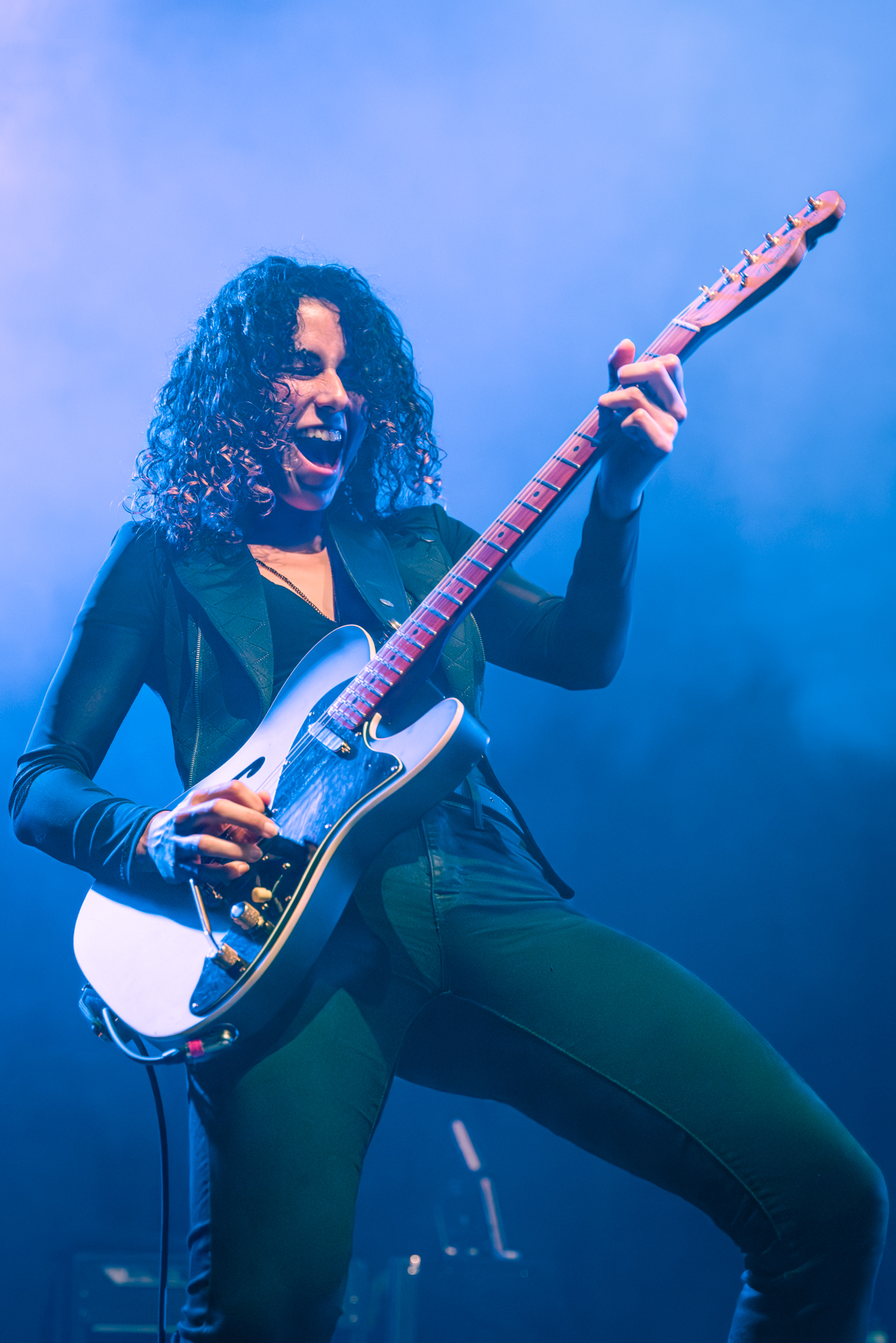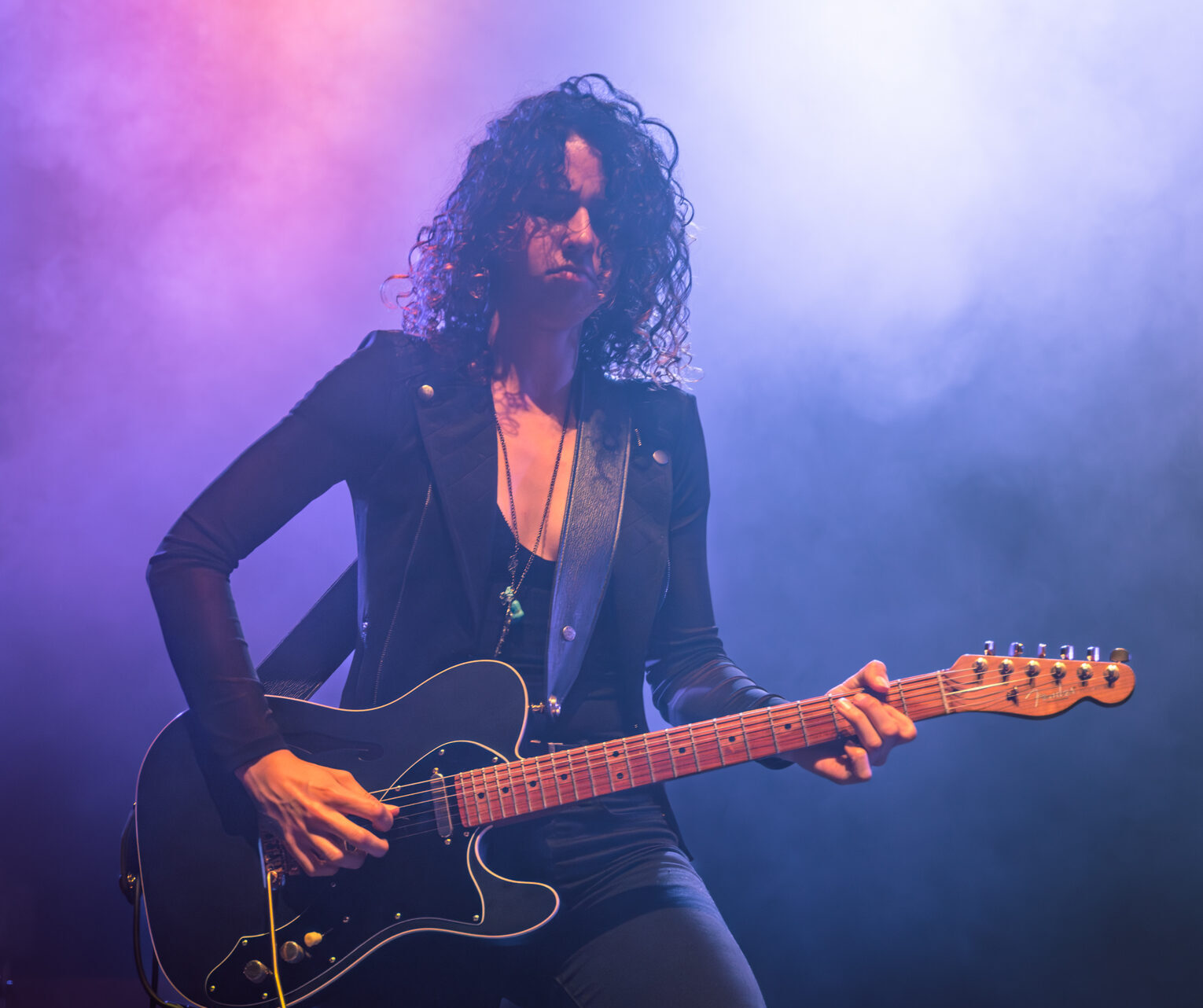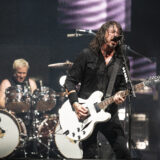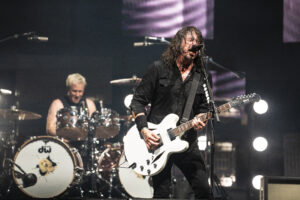Sus Vasquez is one of the many rising guitar virtuosos making their own way in the music industry, and like so many others, she’s had to surround herself with the right people to make it possible. Sometimes, that means finding the right gear companies to align herself with, while other times that means picking (or being picked by) the right megastar to join for a headlining festival slot or a global arena tour.
But while many session and touring musicians simply work with other artists as a means to pay their bills while they experiment with their own creativity on their own tracks, Vasquez would rather stretch her own creative legs on impressive stages as a “hired gun” rather than start from scratch with a solo career.
Because of that, the Colombian-born guitarist plays with a wide variety of artists regardless of genre — ranging from Karol G to Blue October to bass sensation Blu DeTiger — allowing her to channel many different tones and styles out of her trusty guitar. While she’s also able to follow a more rigid structure when a song (or artist requires it), she’s become one of the most sought-after guitarists on the planet due to her creative style. There’s no close replacement for those looking for her brand of string-based creativity.
Ahead of her recent headlining appearance at Lollapalooza with Karol G, SPIN sat down with Vasquez to chat about her musical career, moving to the States, and her favorite gear.

SPIN: How did you develop your own style of guitar?
Sus Vasquez: For a long time, I was the typical guitar player that would go for whatever everybody else wanted to do. So if everybody was playing Eddie Van Halen, I would be playing Eddie Van Halen. But then at some point, I got very unmotivated, and I realized it was because I wasn’t following my true musical taste. So I started to classify why I really liked certain guitar players and why I didn’t like them. It could be something very specific like “I like how he does hybrid picking” or “I like how he bends notes.” Then I started grabbing specific stuff from that. The more you play, the more you do, the more you practice, it just starts to develop with time. I started to hear this clear sound of what I wanted to sound. I think that’s a journey that’s never gonna end, but I think I’m pretty close to what I was hearing in my head.
What was it like moving from Colombia to the U.S. and pretty quickly finding yourself playing massive stages like Coachella and Madison Square Garden?
Well, I’m from Medellin, which is a pretty small city, and I always wanted to do something else. When I was working and playing there, I was doing fine. I knew I could stay there and just keep doing that, but I wanted to get out of my comfort zone and do something bigger. Obviously, moving to the States was really hard for other parts of my life, but it’s also been so inspiring and motivating. It’s made me grow so much. Every day is just about learning more and getting to know different people in the industry and networking — just developing my career and my name. I think it’s very important that even if you’re very comfortable and OK with where you are, but you want to do something else, you have to work very hard.
You’ve done everything from working with major artists in the studio to playing on the main stage at festivals. Are there any moments that stand out for you?
Playing Coachella and Madison Square Garden were two shows that I’ll never forget. I was like “I can’t believe I moved to New York five years ago and now I’m playing Madison Square Garden!” It’s one of the most iconic places in the U.S. to play, so it was a really important moment for me. But I also have memories of things that I’ll never forget for other reasons. For example, I remember playing both in a women’s prison and in a children’s hospital with Karol G. Stuff like that is super simple, but it really touches you and is really meaningful. I love the combination of doing everything, because I love the big stuff, but I also love the small stuff. I just really love the music. Even just being in rehearsals for stadiums or festivals can be very exciting. Every time, it’s like checking something off of the bucket list and living the dreams that we all have.
What’s the biggest difference for you when you’re working with someone else as a session musician as opposed to creating your own music?
I like that I actually get room to create and explore with other people’s music. For instance, on this tour with Karol G, there are a lot of times where I can just sit down and work on different tones that are not the typical distorted and clean tones. I get to really go deep into sound design and create something that’s new for me. But I also love being told what to do, because sometimes I work with musical directors that have a really specific arrangement and you just have to learn specifically what the guitar is doing and why. I love replicating that, but I also love that freedom of getting your tone and proposing new ideas.
Let’s talk gear for a moment. You seem to love your Telecaster-style guitars, Dimarzio pickups and Elixir Strings. What made you choose to work with brands like those?
I’m really, really happy with all the companies that I work with right now, and the gear I use is because I chose them. I’ve always really liked Elixir Strings because they last for a really long time, so I don’t have to change them too often. I’m not lazy, but I just like the fact that I don’t have to worry about that. I also like the way they feel and the tone they provide. Ever since I tried Elixirs many years ago, I was hooked.





